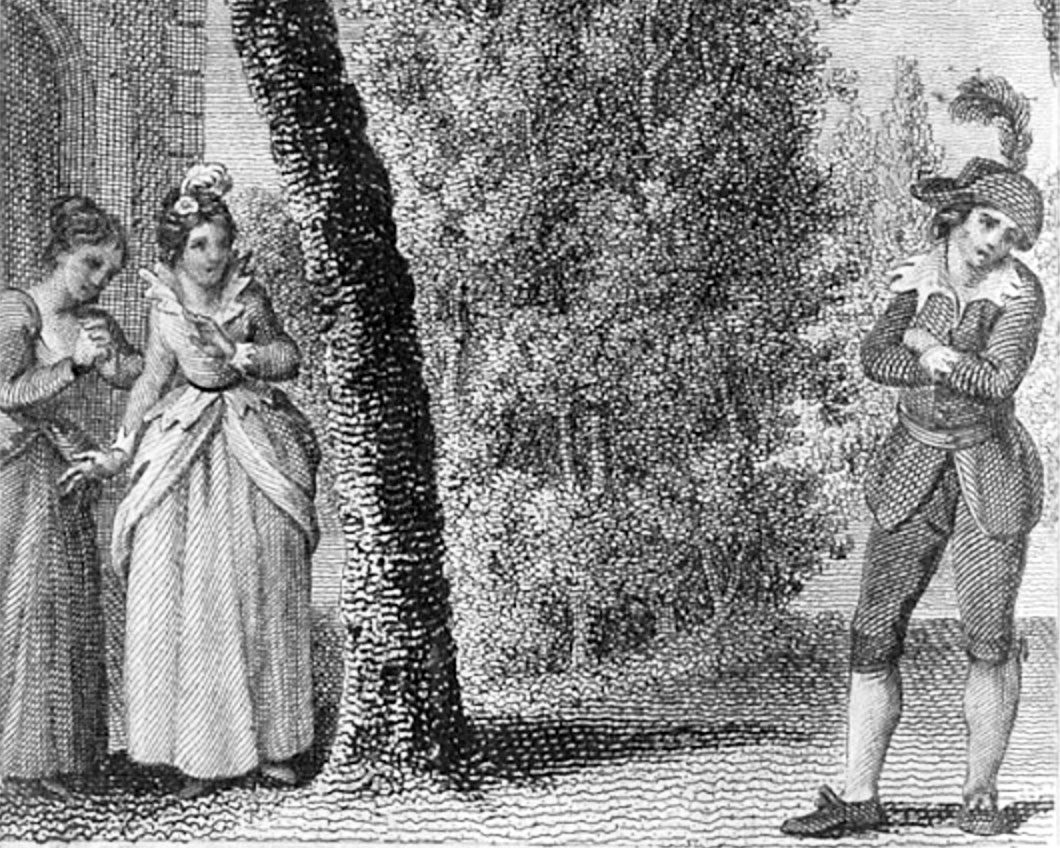bettered novels (13)

A first reading of Clara Reeve’s 1777 novel The Old English Baron did not leave much of an impression. 2 In thinking back on it, I have a vague sense of a tedious simulacra of early modernity, somewhat less appealing than one of William Morris’s more feeble efforts: not at all like the book I have just recently (re)read – which, despite the attractions of vengeful ghosts and some very inept villains, is as staid a representative gothic story as one could hope to read. 3 It will not be surprising that the ghosts are pacified, the villains are exposed and exiled, and virtue triumphs (so much for the plot) – but there are two things about the The Old English Baron that struck my fancy.
First – and this is the element I am most surprised to have forgotten – the preface. Reeve sets the book as ‘the literary offspring of The Castle of Otranto, written upon the same plan, with a design to unite the most attractive and interesting circumstances of the ancient Romance and modern Novel’. This would be dull indeed, were Reeve not more particular about the methods and virtues (to be a bit Shamela-ish about it) of this alchemical union. She is quite clear on both points. As with any novel, the purpose of the gothic story is ‘first, to excite the attention; and secondly, to direct it to some useful, or at least innocent, end’; in particular, for the gothic story:
to attain this end, there is required a sufficient degree of the marvellous, to excite the attention; enough of the manners of real life, to give an air of probability to the work; and enough of the pathetic, to engage the heart in its behalf. (emphasis mine)
In short, the circumstances of the story must be – in varying degrees – unusual, credible, and pitiable. Reeve opposes, however, the facile Walpole-an equation of the unusual with the improbable, and notes that in such narratives ‘When your expectation is wound up to the highest pitch, these circumstances [citing examples from The Castle of Otranto] take it down with a witness, destroy the work of imagination, and, instead of attention, excite laughter.’ 4 This is so practical, reasonable, and commonsensical a reaction to the dangers and temptations of gothic excess, I was quite utterly charmed – as indeed would be any reader of the dread Otranto. If the result of Reeve’s calculations is rather a mild moralistic tale than a pathetic one, it is at least innocent of exciting laughter.
Second, (and I promise to be brief) although there is nothing in the text of the novel to make it seem like anything other than what it sets out to be (viz. a gothic novel comprised of documents gathered together to tell the story Edmund Twyford’s ascent and prove his claim to the position in which he finds himself at novel’s end), one could, if one were feeling artful, take the villain’s part and see Edmund as an imposter. For if the villains can lie, why cannot the servants and tenants? There is not a shred of evidence to support this view – but then given the supposed purpose of the text, to ‘furnish a striking lesson to posterity, of the over-ruling hand of Providence, and the certainty of retribution’, there wouldn’t be, would there?
- The ‘bettered books’ of the title refer to the 1898 list of one hundred great novels from the The Bookman, on which The Old English Baron appears in slot thirteen (chronologically). Although I had earlier thought of beginning with Charles Reade, that was ultimately too daunting, so I set myself the task of reading the thirty-one novels by women first; perhaps then I will move on to translations, or go century by century, or find some other manner (besides book by book) of breaking up the task.[↩]
- I also don’t really remember reading The Peoples of Canada: A Pre-Confederation History, which I apparently did around the same time.[↩]
- Perhaps the comparison to William Morris is not, then, unjust….[↩]
- E.g. ‘Oh! the helmet! the helmet!’[↩]
